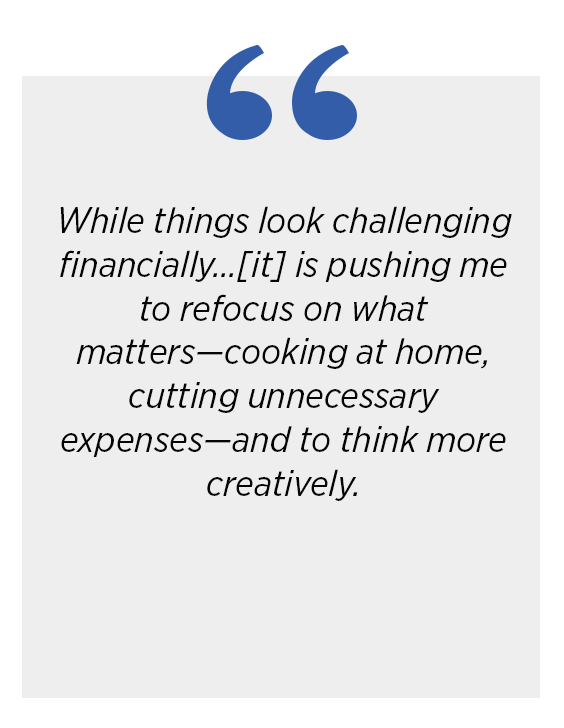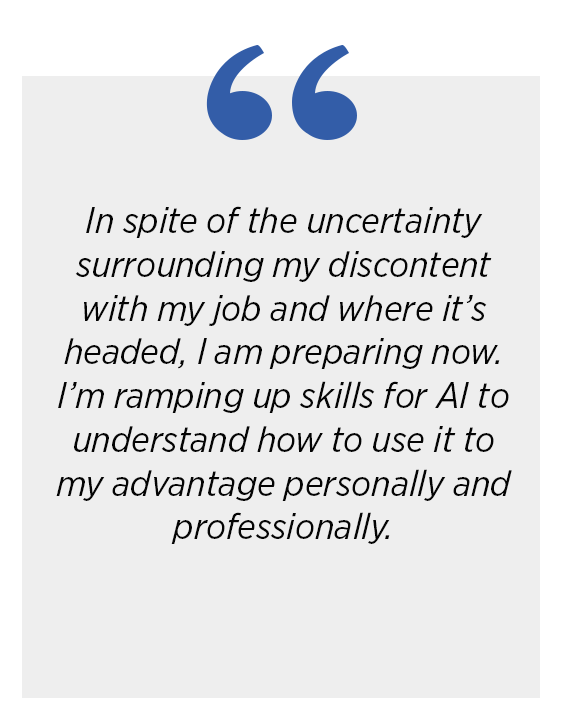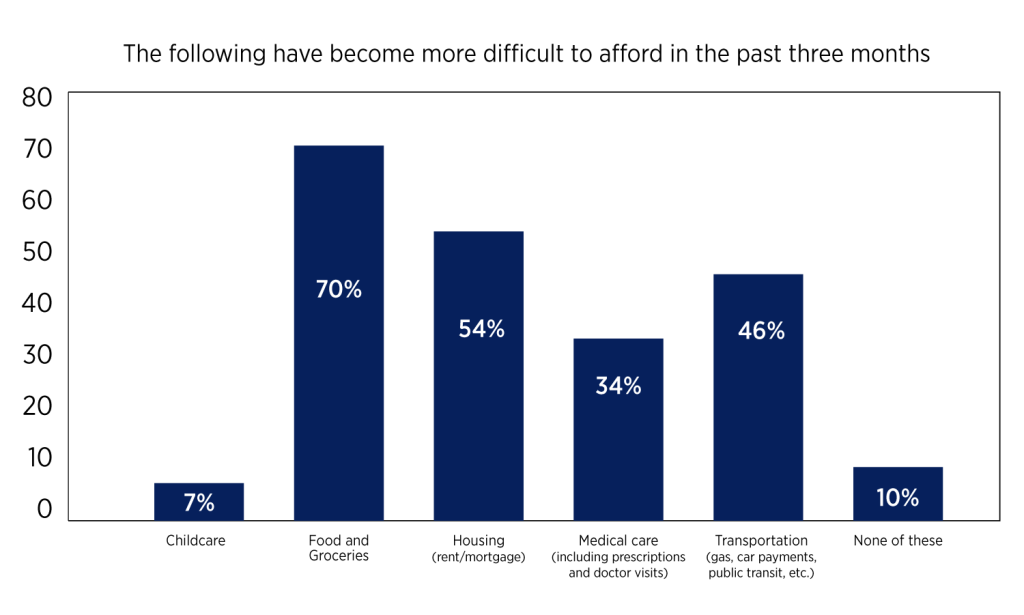Our national consumer survey, The HOPE Insider, is updated quarterly. You can download the PDF summary at the bottom of this page.
Financial Pressure Hurts Planned Holiday Spending in Fourth-Quarter Survey Results
In the fourth quarter of The HOPE Insider, Operation HOPE’s nationwide survey, over 1,900 clients shared their sentiments on current and future economic conditions, as well as their personal financial situations. The results show how this year’s hardships in covering the cost of everyday goods like groceries may heavily affect holiday spending. Additionally, a majority are not confident in their ability to handle an unexpected emergency expense. Despite a tough year with the economy, most respondents are hopeful their financial wellbeing will increase over the next year.

here are five key findings
1. Operation HOPE clients plan to spend less this holiday season
Nearly four out of five respondents say they plan to spend less on holiday purchases this year compared to last year (79%). This correlates with an increased amount of those saying they are worse-off financially than they were a year ago, at 44% compared to 33% this time last year.
2. Economic pressure prevents saving for emergencies
Less than a third of respondents say they feel confident in their ability to handle a major unexpected expense such as a large medical bill (29%). This finding fits within the broader context of 80% saying they consider themselves or their families to be living paycheck to paycheck, up eight points from this time last year. Of those working, 87% feel like their income is not keeping up with the rising cost of living.
In addition to personal financial situations, respondents are also feeling the weight of external factors such as affordable housing in their neighborhoods. To that end, only 38% are hopeful that hosing prices in their communities will allow for greater homeownership over the next year, which is down 10 points from this time last year.

3. The future of jobs remains unclear
Respondents are split on how they perceive AI affecting their jobs over the next year: 48% say they are somewhat to very concerned, while 52% say they are not too concerned or not concerned at all. Currently, of those working, 60% say they are overall satisfied with their current employment. 80% of respondents are hopeful that their work/career will improve over the next year.
4. Personal debt levels are higher than last year
Over half of respondents say their personal debt levels increased over the last three months, at 55%—this is a significant increase from 48% last year. Looking forward, 23% say they are most worried about rising debt levels in the next three months, combined with 42% who are worried about the cost of everyday goods.
A large part of the picture of economic strain is from groceries: 70% say food and groceries have become more difficult to afford in the past three months, up from 60% in the beginning of the year. Over half also say housing has become more challenging this quarter.

5. Clients are hopeful for a better year in 2026
Despite challenging times, 76% of clients say they are somewhat or very hopeful their financial wellbeing will increase over the next year. This speaks to the fact that they have received individual coaching and financial wellbeing tools that help them see a clear path forward and help along the journey.
From debt reduction, improved credit scores, and budgeting tools to build up an emergency savings account, Operation HOPE has been a driving force in helping thousands navigate financial instability.


